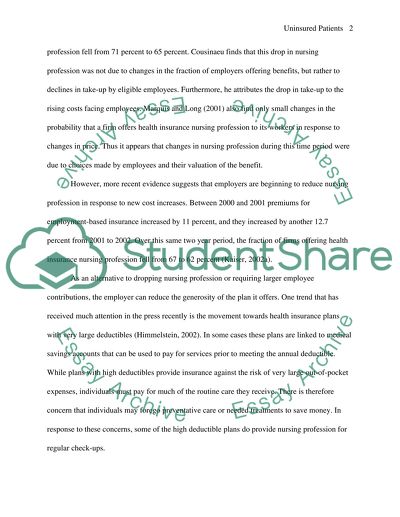Cite this document
(“Uninsured patients in relation to nursing profession in America Essay”, n.d.)
Uninsured patients in relation to nursing profession in America Essay. Retrieved from https://studentshare.org/nursing/1527044-uninsured-patients-in-relation-to-nursing-profession-in-america
Uninsured patients in relation to nursing profession in America Essay. Retrieved from https://studentshare.org/nursing/1527044-uninsured-patients-in-relation-to-nursing-profession-in-america
(Uninsured Patients in Relation to Nursing Profession in America Essay)
Uninsured Patients in Relation to Nursing Profession in America Essay. https://studentshare.org/nursing/1527044-uninsured-patients-in-relation-to-nursing-profession-in-america.
Uninsured Patients in Relation to Nursing Profession in America Essay. https://studentshare.org/nursing/1527044-uninsured-patients-in-relation-to-nursing-profession-in-america.
“Uninsured Patients in Relation to Nursing Profession in America Essay”, n.d. https://studentshare.org/nursing/1527044-uninsured-patients-in-relation-to-nursing-profession-in-america.


